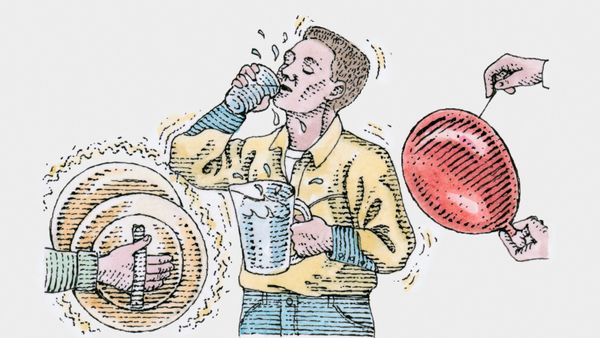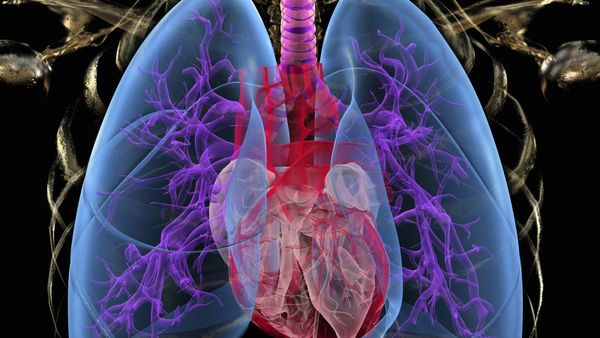Hiccups mean that some sort of trigger has caused your diaphragm to involuntarily contract. Your vocal chords clamp shut just after the contraction starts, causing the "hic" sound that is associated with hiccups. There is usually no need to be alarmed when you get the hiccups. In fact, there is often no apparent reason for the hiccups. However, persistent hiccups can be a sign of a more serious underlying condition.
Hiccups most commonly appear after eating a large meal or after drinking large amounts of alcohol. Eating or drinking a lot causes the stomach to expand and may cause acid from the stomach to move into the esophagus. This can cause irritation of the phrenic nerve, which is the nerve to the diaphragm, and may trigger a spasm of the diaphragm. Eating spicy foods, sudden temperature changes, or extreme stress or excitement may also trigger the hiccups.
Advertisement
In more severe cases, disease or infection in the thorax may irritate the phrenic nerve and cause long-term hiccups. Thoracic conditions that commonly cause hiccups are pneumonia, laryngitis, abdominal or thoracic surgery, or the presence of a tumor, cyst or goiter in your neck. Since hiccups are a complex mechanism controlled by the brain, persistent hiccups may mean that there is some sort of neurological disorder present. This may be stroke, multiple sclerosis, tumors, meningitis, encephalitis or a brain injury as a result of trauma. While these things are not often the cause of hiccups, if you have had hiccups for 48 hours it is important to consult a physician to ensure that your hiccups do not mean that there is something serious going on.

